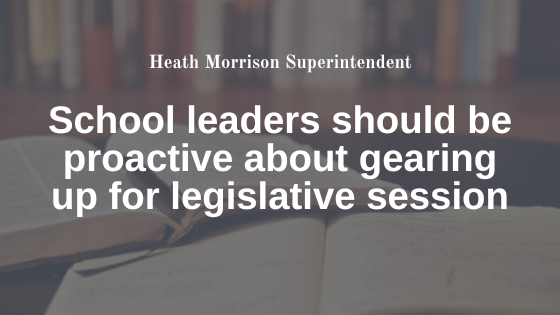State lawmakers across the country are gearing up for their next legislative sessions, which in most states begin in January or February. In upcoming state legislative sessions, there will almost certainly be a significant number of proposals that would have an impact on public education. Everything from finance and budgeting issues, curriculum, safety, testing, vouchers, and what is being messaged as a “Parent’s Bill of Rights” are topics that will be debated by lawmakers at length when they re-convene for their respective state legislative sessions.
To have a positive impact on policy making at the state level, it’s important for district leaders to remain proactive as lawmakers begin to develop their own individual legislative agendas during the summer and fall months. School boards and district leadership teams should immediately engage in the following actions:
- If you haven’t already established relationships with the state lawmakers that represent your school district, you should start building those connections well in advance of any legislative session. The first time a school superintendent or board member meets their lawmakers should not occur during the legislative session, when policy proposals have already been developed.
- The superintendent should form a sub-committee of the board that is focused on legislative issues and tasked with developing a draft legislative platform to take to the full board for adoption. This process should occur at some point during the summer, and the full board should adopt its official legislative platform prior to the upcoming legislative session. The components of a district’s legislative platform will vary, based on each district’s individual needs. But, districts should work to identify common policy priorities, as this will increase the likelihood of legislative approval.
- Invite your lawmakers in for a meeting to discuss important issues impacting your district, including your draft legislative platform, prior to the start of the legislative session. Getting your legislators’ input into your draft legislative platform prior to its adoption by the full board will help build consensus and strengthen your relationship. Additionally, if appropriate, offer to provide them with a tour of a campus during a school day.
- Try to identify other school districts confronted with similar policy or other state-driven issues and build a coalition.
- As a district, state educating your community about the issues impacting your schools and informing them of what you are doing to address them as it relates to working with your state lawmakers. I’m confident you will quickly learn that the vast majority of your stakeholders will not be aware of the issues and that they will be quick to want to help you once educated on them. A grassroots component to your legislative advocacy efforts can serve as a great tool. Ensure that your lawmakers understand that your efforts to educate your community about policy issues impacting your district are not intended to be an “attack” on them, but rather to provide them with support as they consider and take action on important legislation.
- Remain in contact with your lawmakers throughout the legislative session. If your district has developed a strong relationship with your lawmakers, they will consult with your superintendent and/or board president before taking a vote on legislation that impacts schools. You should want to be the education subject area expert for your lawmakers. Offer to go to the capitol to testify on legislation, if appropriate.
- Lastly, if your lawmakers have introduced – and hopefully passed – legislation that would have a positive impact on your school district, be sure to thank and praise them publicly. Your parents and stakeholders should know about the great work their state lawmakers achieved for the school district. This final and necessary step is oftentimes overlooked by advocates at the capitol.
Legislative sessions tend to move very fast. If you aren’t in contact with your state lawmakers well in advance of – and throughout – the session, your district’s input and voice will be left out of important policy decisions ultimately having an impact on student outcomes.

